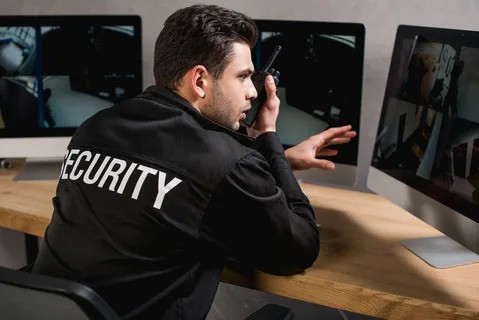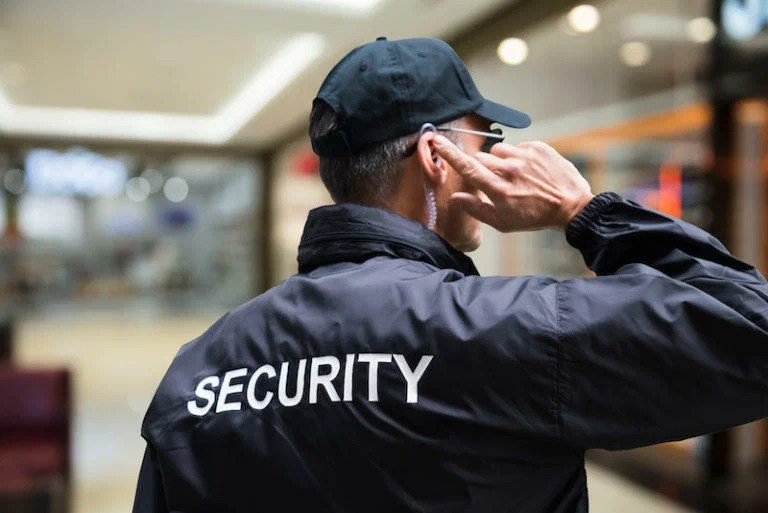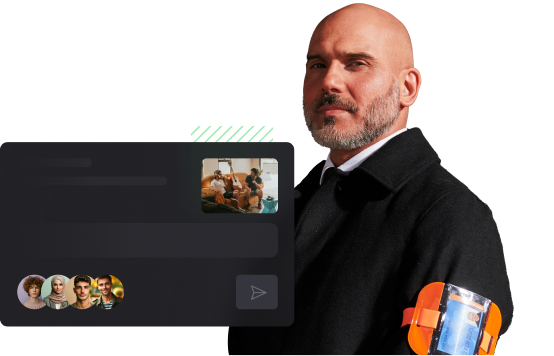In today’s interconnected world, the line between physical and digital security is blurring faster than ever. As a security officer, your role is evolving, and understanding the basics of cybersecurity isn’t just an advantage—it’s becoming a necessity. Let’s explore the key cybersecurity skills that can make you an invaluable asset in the modern security landscape.
1. The Internet of Things (IoT) Revolution
Those CCTV cameras you’re monitoring? They’re likely connected to the internet. Smart locks, sensors, and even lighting systems are all part of the IoT ecosystem. Understanding how these devices communicate and their potential vulnerabilities is crucial. A compromised smart device could be a backdoor into the entire security system.
Key Takeaway: Familiarise yourself with the IoT devices in your workplace and their basic security features. Knowing how they interact can help you spot vulnerabilities before they become threats.
2. Social Engineering: The Human Firewall
Cybercriminals often exploit human psychology rather than technical vulnerabilities. As a security officer, you’re already skilled in reading people and situations. Apply these skills to the digital realm. Be on the lookout for phishing attempts, tailgating (both physical and digital), and other social engineering tactics.
Key Takeaway: Your people skills are a vital defence against cyber threats. Trust your instincts and report suspicious behaviour, whether it’s in person or via email. Awareness of social engineering can help you prevent security breaches before they occur.
3. Digital Access Control Systems
Physical key cards are being replaced by biometric systems and mobile credentials. While these technologies offer convenience, they also present new security challenges. Understanding the basics of digital access control systems, including their potential vulnerabilities, is becoming increasingly important for security officers.
Key Takeaway: Stay informed about the digital access control systems used in your workplace and be prepared to troubleshoot basic issues. This ensures smooth operations and helps protect both physical and digital assets.
4. Data Protection: More Than Just Locked Doors

With regulations like GDPR (General Data Protection Regulation), data protection is everyone’s responsibility. As a security officer, you may have access to sensitive information. Understanding the basics of data classification, safe data handling practices, and the importance of privacy is crucial.
Key Takeaway: Treat digital data with the same level of caution and respect as you would physical assets. Following data protection guidelines ensures compliance and secures personal and organisational information.
5. Incident Response: Handling Physical and Cybersecurity Breaches
In the event of a security breach, your role may involve both physical and digital elements. Understanding the basics of digital forensics—like the importance of not turning off a compromised machine—can be crucial in preserving evidence.
Key Takeaway: Familiarise yourself with your organisation’s cyber incident response plan and understand your role in it. Being prepared ensures that you can act swiftly and effectively if a breach occurs.
6. The Convergence of Physical and Cybersecurity
Modern security systems often integrate physical and digital elements. For example, a breach in a data centre might trigger both digital alerts and physical lockdown procedures. Understanding how these systems work together is becoming increasingly important for security officers.
Key Takeaway: Think holistically about security. A physical breach could lead to a cyber incident, and vice versa. This comprehensive approach will help you spot connections others might miss.
7. Continuous Learning: Stay Ahead of the Curve
The world of cybersecurity is constantly evolving. While you don’t need to become a cybersecurity expert, staying informed about basic concepts and emerging cybersecurity threats is crucial. Common threats like phishing attacks, ransomware, and insider threats are all becoming more sophisticated, and security officers must stay vigilant.
Key Takeaway: Make cybersecurity awareness a part of your ongoing professional development. Many online resources offer free basic training to help you learn cybersecurity skills. Staying up to date can help you spot potential threats and handle them effectively.
Elevate Your Security Skills with Get Licensed

Remember, as a security officer, you’re not expected to be a cybersecurity expert. However, having a basic understanding of these essential cybersecurity skills can make you an invaluable asset to your team and organisation. Your unique perspective—understanding both the physical space and the people within it—combined with cybersecurity awareness, puts you in a unique position to spot potential threats that others might miss.
At Get Licensed, we offer comprehensive security training programmes that go beyond the basics. Our CCTV Operator and Door Supervisor training courses are designed to not only teach you about physical security but also help you understand the digital components that are increasingly becoming part of everyday security roles.
By enrolling in our courses, you’ll gain a solid foundation in physical security systems, from operating CCTV cameras to managing access control, while also learning how to recognise and respond to potential cyber threats. Whether you’re looking to enhance your skills or take your first steps into the security industry, Get Licensed provides the tools and knowledge to ensure you’re fully equipped for the modern security landscape.
Conclusion
As a security officer, you’re not just guarding doors and monitoring cameras anymore. You’re a crucial part of a comprehensive security strategy that spans both the physical and digital realms. By embracing these cybersecurity skills, you’re not just future-proofing your career—you’re playing a vital role in keeping our increasingly connected world safe and secure.
So, are you ready to level up your security game? The digital frontier awaits, and with these skills in your toolkit, you’re well-equipped to meet its challenges head-on.


Leave a Reply